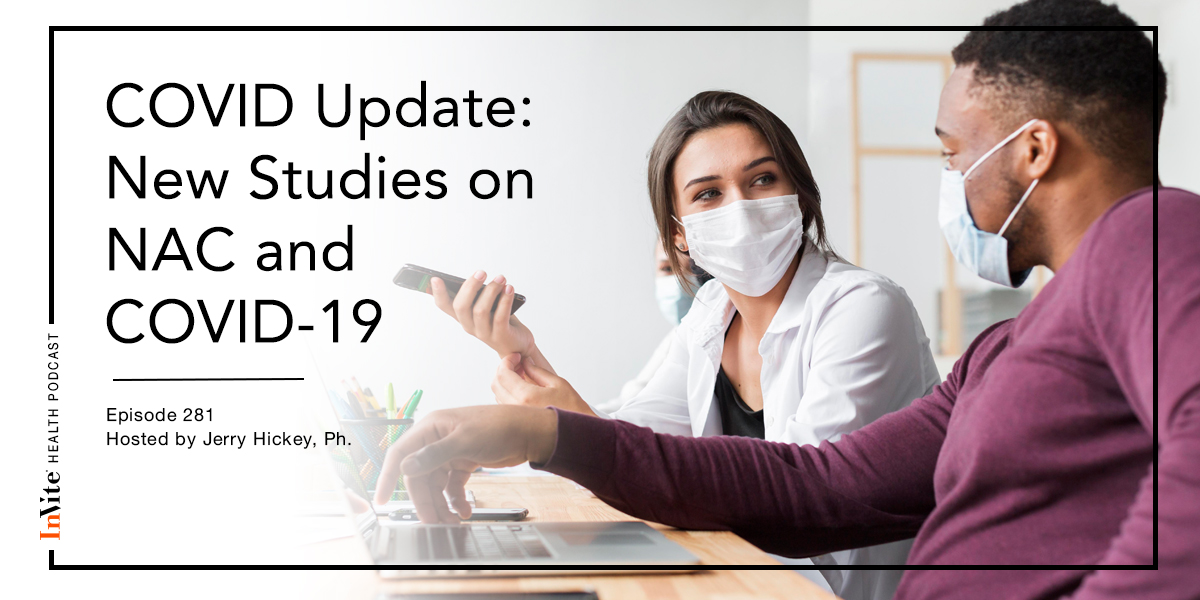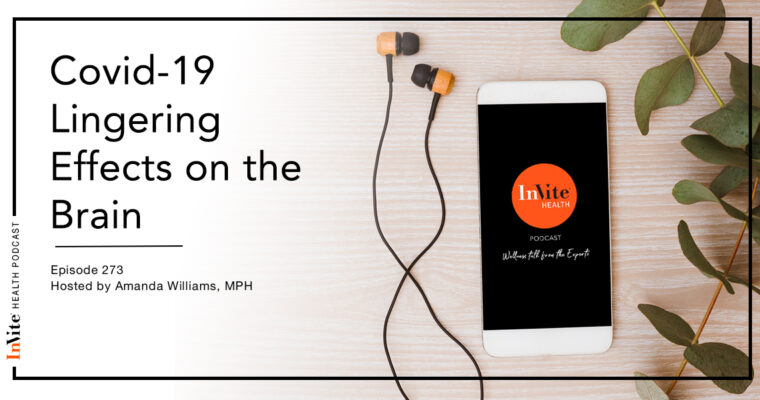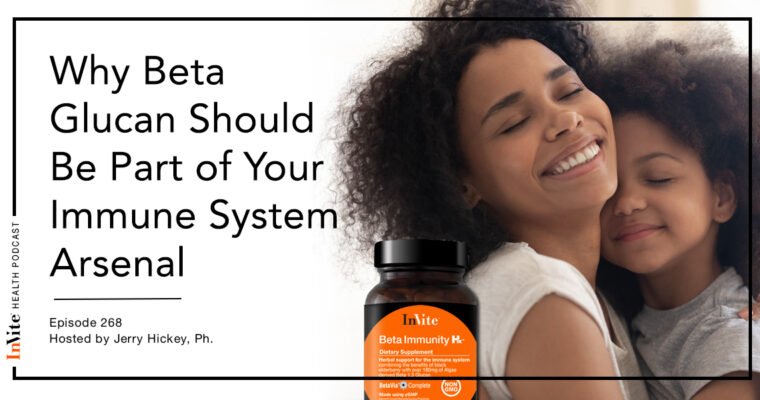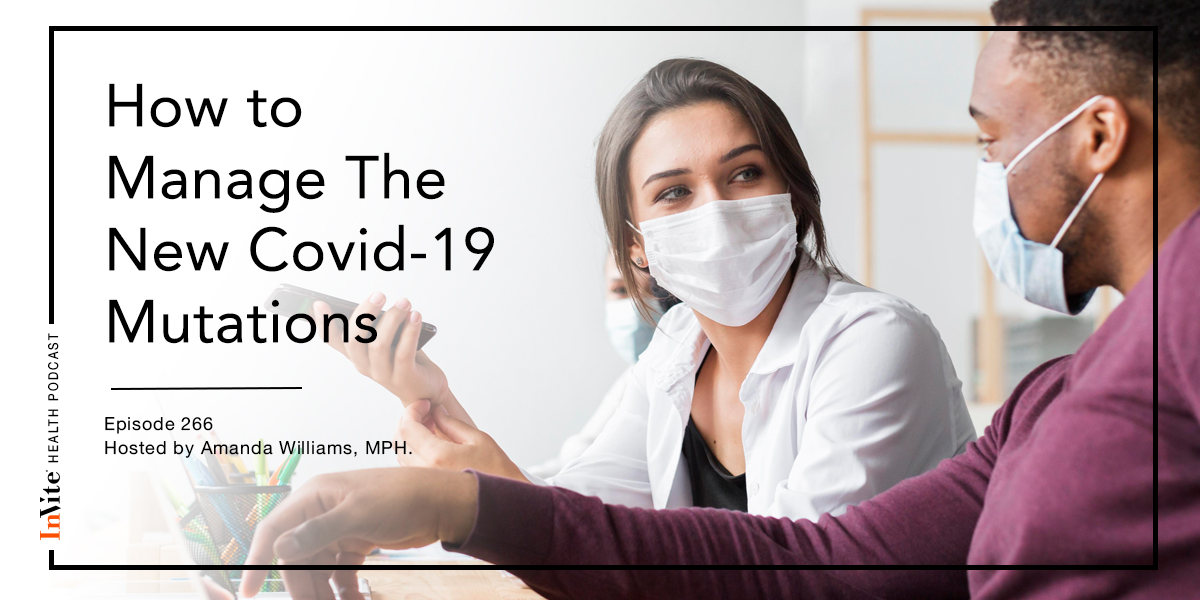covid mutations
Invite Health Podcast, Episode hosted by Amanda Williams, MPH.
Subscribe Today!
By now, we’ve all heard that there is a new strain of the COVID-19 virus that is out there and it has been coined the UK strain. A lot of focus has been put on this strain because of the perception that it is certainly much more transmissible and hence more contagious, but they’re not able to definitely show that it is creating higher mortality rates. This means that the original strain of virus going around was infecting and killing people roughly at the same rate as this new strain, which is infecting more people but perhaps killing less people.
Let’s talk a little bit about that in terms of what it actually means when we talk about a variant or a mutation within a virus and why this can be incredibly problematic when we’re looking at COVID-19, as well as what we should be doing throughout this time.
Genetic changes within viruses
We know that viruses as a whole continually change as a result of basic genetic selection, so they’re undergoing these different subtle genetic changes or mutations. Through these mutations, then we can end up with a variant or strain that actually is presenting in a much different way than the original virus.
We can think about the influenza virus, for example. We know that from one year to the next, there are always new strains. With the flu vaccine, they’re always trying to predict what the new mutation might be.
How To Support Respiratory Health During A Pandemic – InVite Health Podcast, Episode 253. Listen Now >>
The mutation rates of viruses certainly are quite high. When we look at RNA viruses in particular, which is what COVID-19 is, they have a much higher mutation rate. Being that RNA viruses seem to mutate at a much higher rate, then we have to look at it and consider how we can track it in terms of its infectiousness. We know that the virus is replaced by many, many different generations of itself and this is what a virus tends to do. They change and evolve many times.
Learn more about the replication of viruses and the variety of coronavirus strains by tuning into the full podcast episode.

What to know as we face mutations in COVID-19
One of the things we know for sure now that we as a scientific community have been researching the rate and spread of COVID-19 for over a year now is how effective masking and social distancing can be. When you start to see a waning of this behavior, we start to see this spike. That’s where the worry is with this new strain of virus because people have COVID fatigue. Now that we have a new strain that’s out there that’s really, really infectious, you have to make sure that you are taking every possible precaution that you can during this time.
There are more and more studies that continue to come out that are shedding more light onto COVID-19 and the different variants that are out there. One thing that came out recently in the journal PLOS One was that males of all ages appear to be affected by COVID-19 at a greater rate than females. The researchers were looking at different data that was available through Houston Methodist Research Institute and they were able to identify different populations and subgroups within those populations that were being strongly impacted by looking at the level of disease and vulnerability of different groups. What they were able to detect overall was that those who were testing positive for COVID-19 were, at a greater proportion, males as compared to females. At this point in time, it is looking like males are more likely to actually contract the SARS-CoV-2 virus. This is certainly something they’re going to be looking into in terms of further investigation and it is important to know now that we’re looking at this UK variant that is now starting to traverse across the United States.
COVID-19 Research Recommends Vitamin D Supplementation – InVite Health Podcast, Episode 251. Listen Now >>
The University of Texas at Austin were looking at the different mutations and talking about how the mutations themselves are what are making the coronavirus more contagious. Sometimes you see this in the opposite way with other viruses, where the more mutations there are, the lower the transmission rate becomes. But we’re not seeing that with COVID-19. The researchers were looking at 5000 different patients who were COVID-19 positive in Houston and were finding that the virus that causes the disease was accumulating greater genetic mutations than they even recognized before.
Tune into the full podcast episode for more information on the research relating to new COVID-19 strains.
We’ve gotten a lot of questions about whether people should be doing anything different to prepare for these new variants. My best advice would be to make sure you’re doing everything in your power to support your immune system during this. Make sure that, every single day, you’re taking things that we know the immune system needs to function properly, like Vitamin C, Vitamin D, zinc and magnesium. Even at bare minimum, I would encourage people to take a multivitamin, as well as Immunity Hx to give you an adequate amount of Vitamin D, Vitamin C and zinc. You also want to make sure that you’re still practicing proper social distancing and you’re limiting your exposure to big, large group settings. If you’re going to be going out, wear your mask.
Questions about these new COVID mutations? Leave Amanda Williams, MPH a comment below to join in the discussion!
Thank you for tuning in to the Invite Health Podcast. You can find all of our episodes for free wherever you listen to podcasts or by visiting www.invitehealth.com/podcast. Make sure you subscribe and leave us a review! Follow us on Facebook, Twitter and Instagram at Invite Health today. We’ll see you next time on another episode of the Invite Health Podcast.











